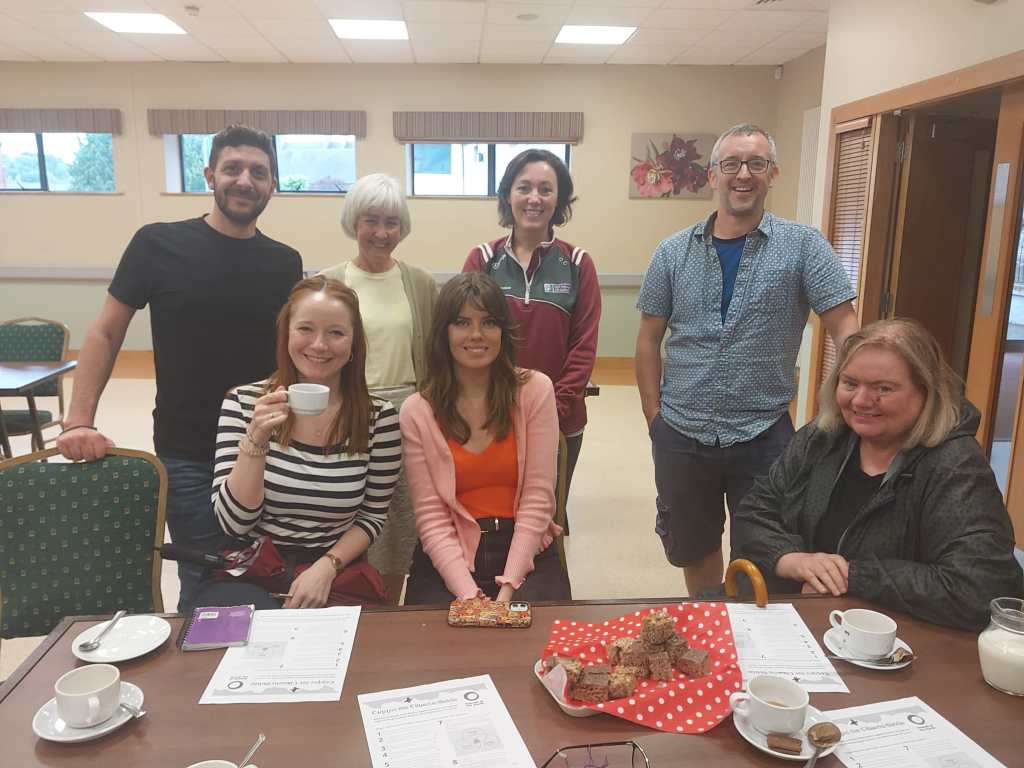The current dispute between Russia and the Ukraine has once again drawn attention to the dependency of Europe on gas from Russia. Nowhere is this more relevant than Ireland, where we import roughly 90% of our fossil fuels. Mícheál Callaghan went along to a recent Prime Time debate on Oil & Gas exploration in Ireland.

USA fracked landscape on left, with visible oil wells. Will parts of Irish country side look similar?
Increased flooding, extreme weather, rising fuel prices. The signs are all around of us of the need for a break from fossil fuels. We are told that Ireland could be the Saudia Arabia of the green energy world. Despite this, the Prime Time debate on Tuesday 11th March in relation to Oil and Gas exploration in Ireland did not once mention climate change. On the panel were Eddie Hobbs, Richard Boyd Barrett TD, Minister for Energy & Natural Resources Pat Rabbitte and David Horgan of Petrel Resources. The debate largely focused on what tax rate should be charged on any finds of oil and gas off the coast of Ireland. While this is indeed an important discussion to have, all sides seemed to agree that if reserves were found they should be exploited, with Pat Rabitte even questioning the sense of leaving it in the ground.
It is now recognised in climate science, that if we are to avoid the critical threshold of 2 degrees of warming we can only ‘afford’ to exploit one fifth of the world’s remaining fossil fuel reserves. Therefore, it would seem clear that the future of the planet and a stable climate would depend on resources being left in the ground and alternative, cleaner sources of energy being favoured.
Closer to home , the possibility of shale gas being exploited in the process of hydraulic fracturing or ‘fracking’ is being investigated in Counties Fermanagh, Leitrim & Cavan. If fracking were to be given the go ahead in these areas, this could result in significant environmental destruction of the area and pollution to the water table. At present.
In the Republic, the government has put in place a moratorium of the granting of new licenses for fracking, pending further studies.
Fracking involves drilling up to 2km below the surface to access shale gas trapped in rock. Water, chemicals and sand are pumped at high pressure under the rock to create cracks in the rock, to access the gas, which is then pumped up to the fracking wells on the surface.
According to Robert Emmet Hernan, author of The Borrowed Earth, Irish farmers should be deeply concerned about fracking. He cites the risk of groundwater and surface pollution from the chemicals used in fracking, dangers from trucks carrying chemicals and hazardous waste on country roads, as well as general threat to quality of life by greater industrialisation brought by fracking as concerns that farmers and rural dwellers alike should have. He also raises concerns about competition for water resources. Fracking requires between 2.4 to 7.8 million gallons of water per well, according to assessment in New York.
Fracking has caused controversy in the USA, with claims that leakages and poor regulation leading to high methane levels in water supplies, as well as issues around the disposal of the highly toxic waste materials. There has also been a link between fracking and seismic activity. An earthquake of magnitude 3.0 on the richter scale has been linked to fracking in Ohio.
With the upcoming local and European elections, Friends of the Earth are calling on people to prompt their candidates and public representatives about fracking to find out their stance on the issue.
Over all, there are many worrying issues that are still unclear about fracking. Above all else, if we are serious about combatting climate change and leaving a stable future for generations to come it is about time we start leaving the oil in the soil!





